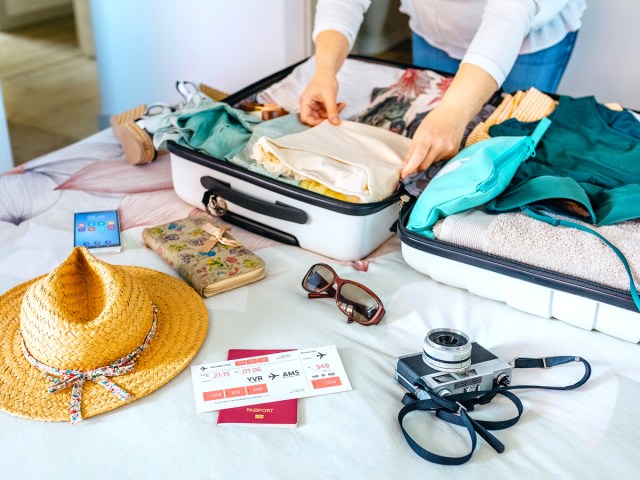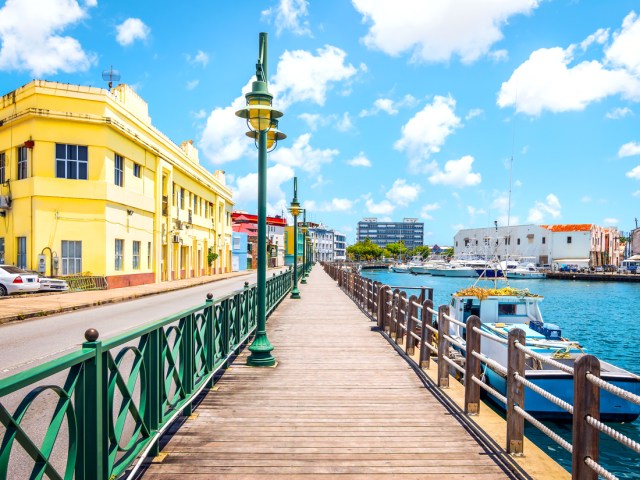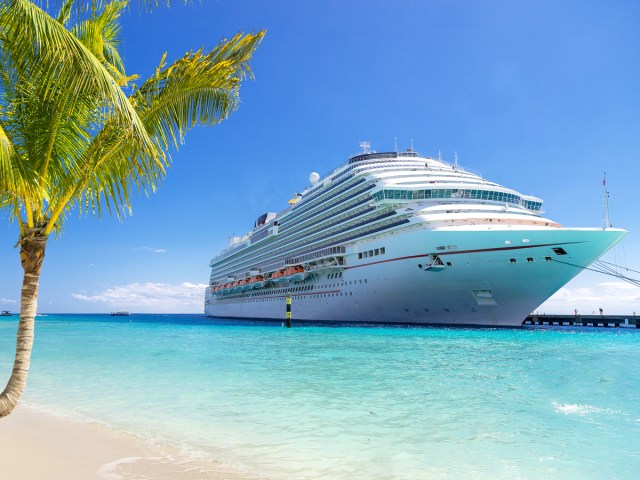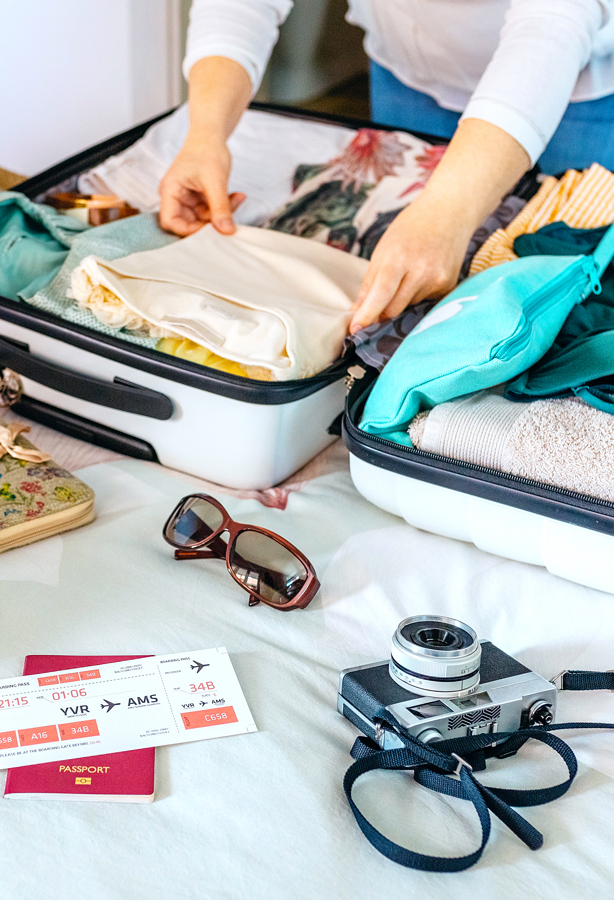If you’ve never been on a cruise, chances are you might feel a little intimidated. But you certainly won’t be alone: 31.7 million travelers set sail in 2023, a number that is projected to grow to 39.4 million by 2027. Seasoned cruisers and cruise experts in the industry know about certain hacks to make sure they’re prepared before they embark, and we’ve compiled 10 helpful tips about what not to do before and after you board. Whether you’re headed to Alaska or the Caribbean, stick to these pro tips for first-time cruisers.
Stay in the Know on Social Media

Following your cruise line or connecting with other seasoned cruisers on social media is the first step to ensuring your vacation runs smoothly. Many cruise lines — such as Carnival, Royal Caribbean, and Holland America — have apps that you can download and use to make reservations for shore activities and onboard dining. Plus, they often don’t require Wi-Fi to use. It’s an easy way to see a personalized calendar of what you have booked and the ship’s arrival and departure times. On other social media platforms such as Facebook, you can also connect with fellow cruisers to chat about plans or concerns in private groups.
Consider BYOB

Although many cruises offer drinks packages that can end up saving you money, purchasing a la carte cocktails aboard the ship is a quick way to burn through your wallet. But here’s something that many first-time passengers don’t realize: Oftentimes, you actually bring your own beverages onboard (within a specified limit). Companies such as Disney Cruise Line and Royal Caribbean have a bottle allowance for passengers 21 and older. Check with your line before you depart to see if you can pop your own Champagne on your first night.
Pack a Lanyard and These Other Essentials

You probably won’t forget to pack your bathing suit or sunglasses, but there are certain items you may not think to bring on your first cruise. These include a lanyard (for easy key card access), a highlighter (for highlighting which activities you are signed up for), a mesh bag for dirty clothes, plastic file folders for holding important papers, and a small tote or backpack for day trips onshore.
Stay Near Your Departure Dock the Night Before

Missing a cruise does occasionally happen — mostly because of flight delays. To avoid stress at the airport, we recommend arriving at your departure port destination a few days before you’re set to embark, just in case anything happens. The ship won’t turn around for you, so it’s better to be safe than sorry.
Research Port Hub Hot Spots

When you arrive at each port on your journey, it’s a good idea to have a general idea of which sights you want to see, where you want to eat, and how much time you have to do these things before the ship leaves. When you dock, many fellow cruisers will be flocking to the same places on foot, so you may find that the nearest restaurants or activities are booked. Before you board, thoroughly research each destination so you can discover hidden gems that won’t be as crowded or touristy. Make reservations and map out your day ahead of schedule.
You Don’t Need to Tip Twice Onboard

Many cruise lines charge a set daily gratuity for stateroom attendants and dining room staff that’s later added to your room bill. Specialty dining, bars, and spas onboard will also often automatically add a tip to the bill, so make sure you read closely and don’t tip more than you intended. When in doubt, ask if gratuity has been included so you don’t pay an additional 18% or 20% more than you need to. Or if you’d prefer simplicity, some cruise lines — such as Silversea and Virgin Voyages — include gratuities in their cruise fares, so there’s no need to tip onboard.
Sign Up for Activities in Advance

If your cruise line allows you to do so, sign up for tours, shows, dining reservations, and other activities in advance. These activities fill up quickly, so the early bird will get the worm. If signing up prior to boarding isn’t an option, sign up as soon as you get to your cabin.
Take Advantage of Private Tours

Speaking of tours, don’t overlook the ship’s private tour offerings. Each cruise line has a variety of customized tours (for an additional cost) that sometimes only passengers get the privilege of reserving. Many of these excursions — such as hiking to a waterfall or an intimate cooking class — are unique to the area and led by seasoned guides. Tours are also conducted in smaller groups, so you have more time to engage with your guide and will spend less time waiting in lines.
Keep Your Phone in Airplane Mode

Even if you’re on vacation, Wi-Fi is a must, especially in the case of an emergency. Unfortunately, most cruise lines still charge for Wi-Fi, so be sure to purchase your cruise line’s Wi-Fi package and keep your phone on airplane mode. Roaming fees (especially abroad) can quickly add up if you don’t have a travel plan. Fortunately, many carriers now offer unlimited talk and text plans that include Canada, Mexico, and the Caribbean, so most cruisers departing the U.S. may not need to worry. But if you’re on your way to Europe or Asia, it’s best to have a plan for your phone use.
Consider Purchasing Travel Insurance

Falling ill at sea or experiencing another emergency will be costly if you need to quickly get ashore. One way to be prepared in this case is to purchase travel insurance prior to departure. That way, you can rest easy knowing that if catastrophe calls, you won’t be drowning in debt. (Alternatively, check to see if your credit card offers travel insurance coverage.) Many cruise passengers in March 2020 were happy to have such coverage, and many insurance plans will also include cancellations, flight delays, and other incidents that would prevent you from relaxing on your dream getaway.
Note: All featured products and deals are selected independently and objectively by the author. Daily Passport may receive a share of sales via affiliate links in content.
More from our network
Daily Passport is part of Inbox Studio, an email-first media company. *Indicates a third-party property.
















